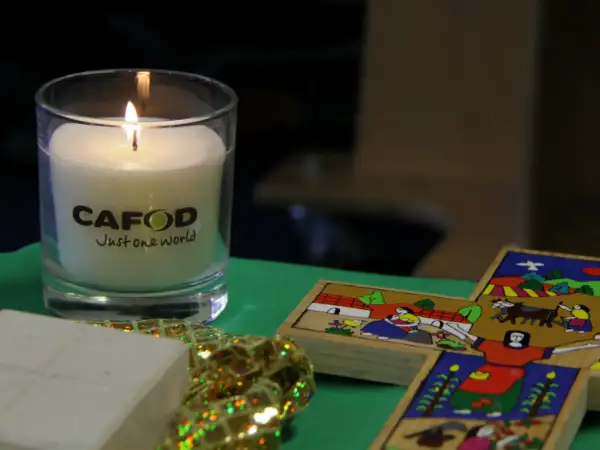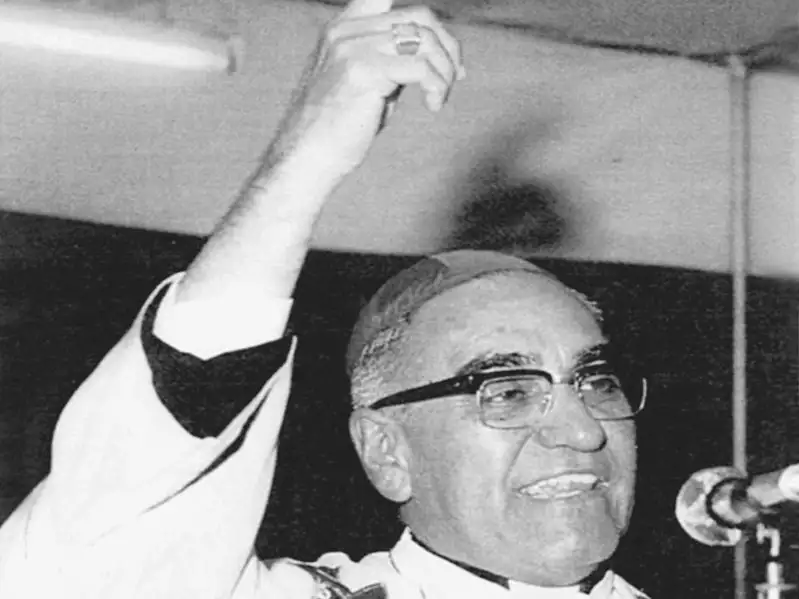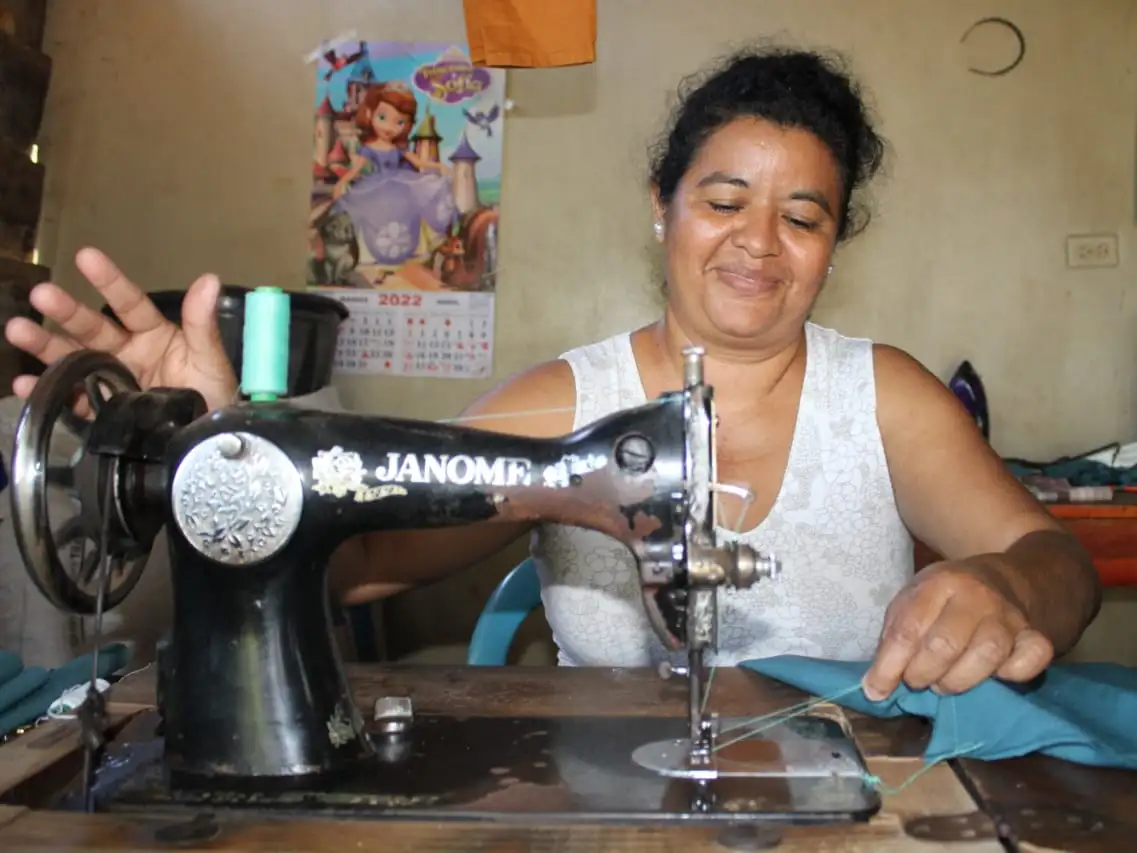A prayer giving thanks for Saint Romero's life and asking that the Spirit of hope may work within us as it worked through him.
Local experts working with CAFOD in El Salvador continue to stand up for peace, against injustice and repression, in Oscar Romero’s name.
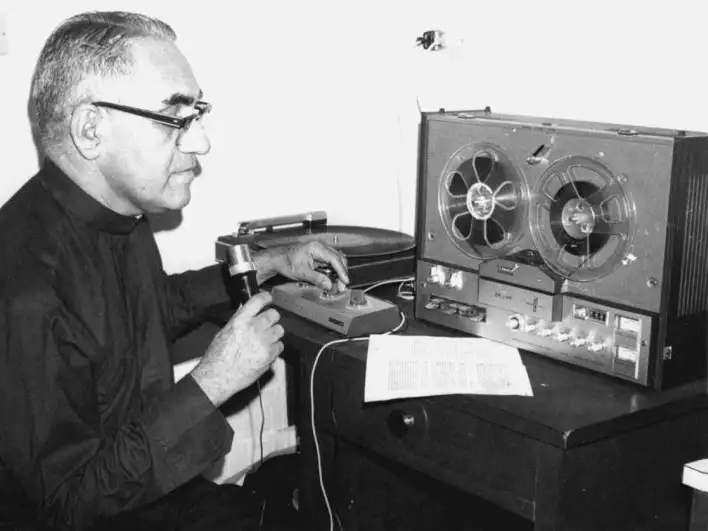

Oscar Romero broadcasting his sermon from his radio station in El Salvador
Saint Oscar Romero is considered the predecessor of human rights defenders in El Salvador. He has inspired millions of people around the world - Catholics and non-Catholics alike - to stand up for justice and fight for peace.
Today, his legacy is more important than ever.
The day before the Archbishop of San Salvador was assassinated, he pleaded with soldiers to disobey their orders - to stand up for peace and justice instead.
“In the name of God,” he called out over the radio, “in the name of this suffering people whose cries rise to Heaven more loudly each day, I implore you, I beg you, I order you in the name of God: Stop the repression!”
The following day, on Monday 24 March 1980, St Oscar Romero was killed by a single shot through the heart, fired from the doorway of a hospital chapel.
Moments earlier, during his homily, he’d preached: “Those who surrender to the service of the poor through love of Christ will live like the grain of wheat that dies.”
Those who surrender to the service of the poor through love of Christ will live like the grain of wheat that dies
The current state of human rights in El Salvador
During his political campaign, Nayib Bukele presented himself as a progressive alternative to the country’s traditional parties - parties who had governed El Salvador since the end of the civil war in 1992.
In 2019, after successfully defeating his two rivals, Bukele became president.
Once in office, one of Bukele’s biggest challenges was the country’s high levels of violence. Until recently, El Salvador had the highest murder rates in the world.
President Bukele introduced a ‘state of exception’ in March 2022, giving special powers to the police and military forces to detain suspected gang members. Murder rates dropped from 1,341 a year in 2020 to 496 in 2022. However, the ‘state of exception’ - initially requested for one month - has now been renewed for 24 consecutive months.
This radical security measure not only suspends fundamental human rights of citizens, but also limits due process of justice and freedom of expression.
Overcrowded prisons have enabled human rights abuses. Innocent people have been captured and imprisoned. People are dying. As President Bukele is set to run a second term, and on the anniversary of St Oscar Romero’s calls for peace, we continue to monitor the human rights situation in El Salvador.
Father Vicente Chopin, municipal parish leader in El Salvador, told us: "The cases of crimes against humanity from the civil war have not been solved - and we are now adding crimes from the ‘state of emergency’.”
El Salvador has the highest incarceration rate in the world
Since 2022, over 75,000 people have been detained. In a country of about 6 million, that’s more than one per cent of the population.
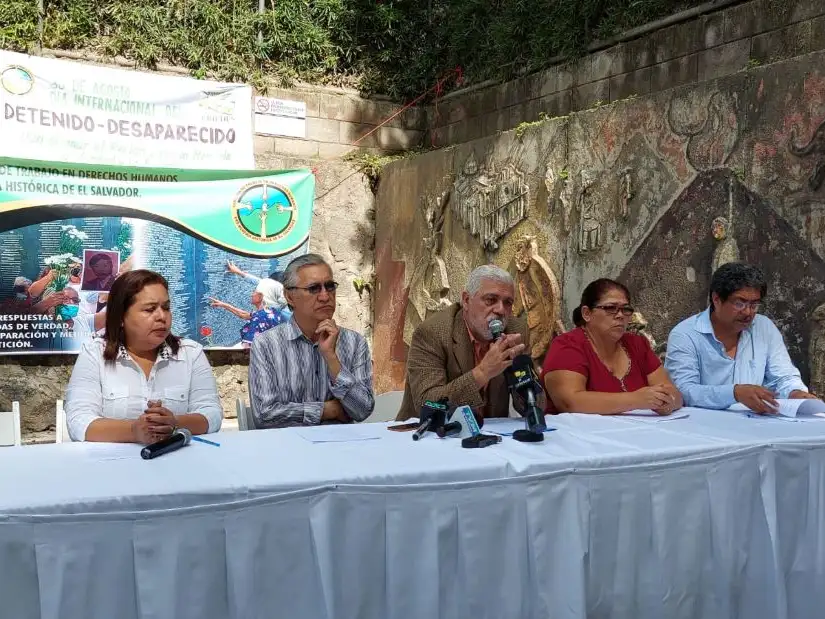

Human rights institution Tutela Legal denounced illegal detentions and other human rights violations that occurred during the of ‘state of exception’ in El Salvador
Standing up for justice today in El Salvador
Four decades after St Oscar Romero’s killing during the civil war, people around the world continue to be inspired by his strength and courage to fight for justice.
CAFOD is working alongside Tutela Legal María Julia Hernández in El Salvador. Tutela Legal was founded by María Julia Hernández in 1982. As founder and director she began investigating the assassination of St Oscar Romero, compiling documents and testimonies.
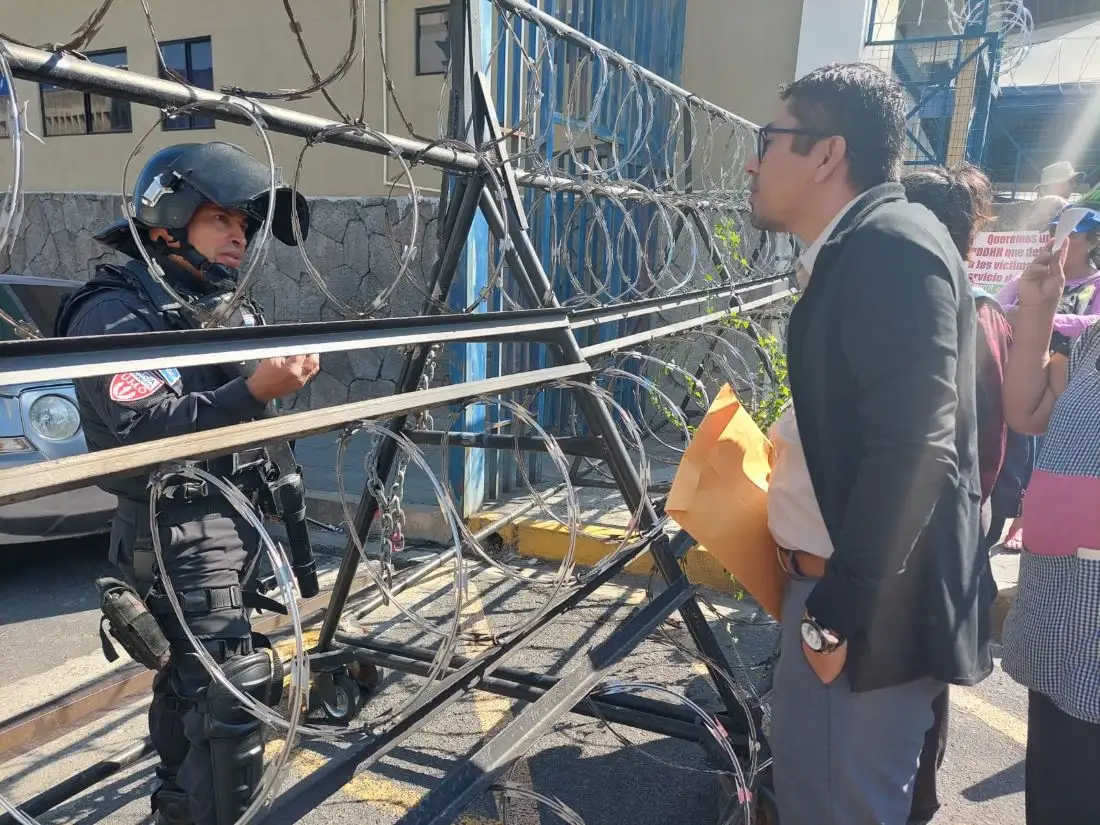

Member of Tutela Legal talking to a Salvadoran national police officer in a blocked area
Now, Tutela Legal currently represents around 500 families who say their relatives have been unjustly swept up in the mass arrests as part of President Bukele's gang crackdown.
Alejandro Diaz, president of Tutela Legal, tells us:
“People are living in an indefinite state of emergency, with human rights being massively and systematically violated every day. This is being presented to the public as something totally normal and publicised as a model for national security to be exported across Latin America.
"Today, innocent people are arrested, tortured, and killed. There is no fair trial and no impartial judges.”
The cases monitored by Tutela Legal have demonstrated a lack of judicial independence and legal guarantees. These are inquisitorial processes leading to arbitrary detentions of up to two years without full investigation or proper sentencing.
In response, Tutela Legal, in partnership with other organisations (including the UN), has lobbied the government to request on-site visits to check prisoner welfare and safety. So far, these requests have been denied on grounds of 'sovereignty'.
Sunday 24 March 2024 is the 44th anniversary of St Oscar Romero’s assassination.
People in El Salvador are living in an indefinite state of emergency, with human rights being massively and systematically violated every day
A timeline of information about Oscar Romero's life from his birth in 1917 in El Salvador to his martyrdom in 1980 and canonisation in 2018.
CAFOD has worked in El Salvador since the 1970s. We focus on agriculture, promoting a culture of peace and justice, and empowering women.


